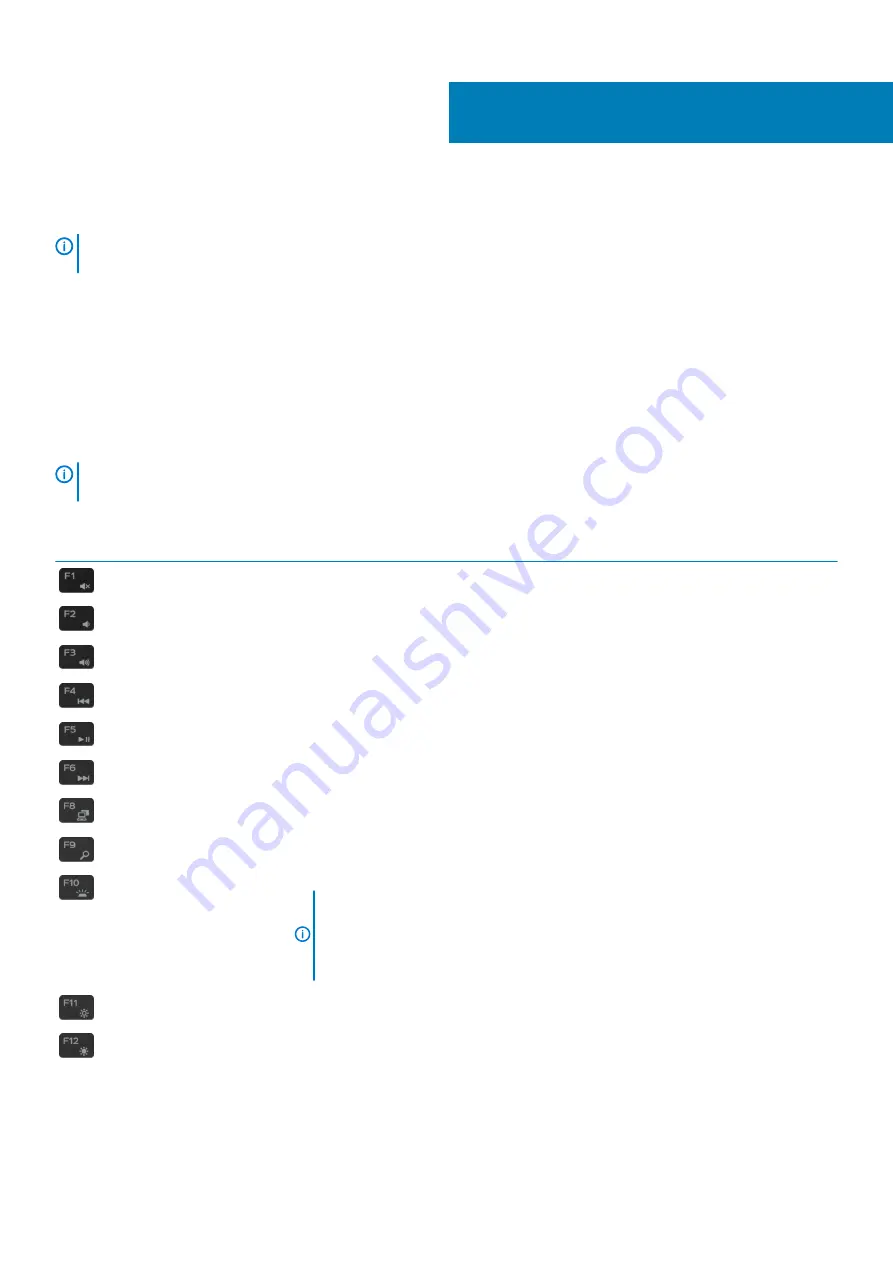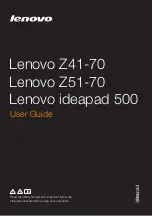
Keyboard shortcuts
NOTE:
Keyboard characters may differ depending on the keyboard language configuration. Keys used for shortcuts
remain the same across all language configurations.
Some keys on your keyboard have two symbols on them. These keys can be used to type alternate characters or to perform secondary
functions. The symbol shown on the lower part of the key refers to the character that is typed out when the key is pressed. If you press
shift and the key, the symbol shown on the upper part of the key is typed out. For example, if you press
2
,
2
is typed out; if you press
Shift
+
2
,
@
is typed out.
The keys F1-F12 at the top row of the keyboard are function keys for multi-media control, as indicated by the icon at the bottom of the
key. Press the function key to invoke the task represented by the icon. For example, pressing F1 mutes the audio (refer to the table
below).
However, if the function keys F1-F12 are needed for specific software applications, multi-media functionality can be disabled by pressing
Fn
+
Esc
. Subsequently, multi-media control can be invoked by pressing
Fn
and the respective function key. For example, mute audio by
pressing
Fn
+
F1
.
NOTE:
You can also define the primary behavior of the function keys (F1–F12) by changing Function Key Behavior in
BIOS setup program.
Table 23. List of keyboard shortcuts
Function key
Primary Behavior
Secondary Behavior (Fn + Key)
Mute audio
F1 behavior
Decrease volume
F2 behavior
Increase volume
F3 behavior
Play previous track/chapter
F4 behavior
Play/Pause
F5 behavior
Play next track/chapter
F6 behavior
Switch to external display
F8 behavior
Search
F9 behavior
Toggle keyboard backlight (optional)
NOTE:
Non-backlight keyboards
have F10 function key without
the backlight icon and does not
support toggle keyboard
backlight function.
F10 behavior
Decrease brightness
F11 behavior
Increase brightness
F12 behavior
The
Fn
key is also used with selected keys on the keyboard to invoke other secondary functions.
4
Keyboard shortcuts
19



































